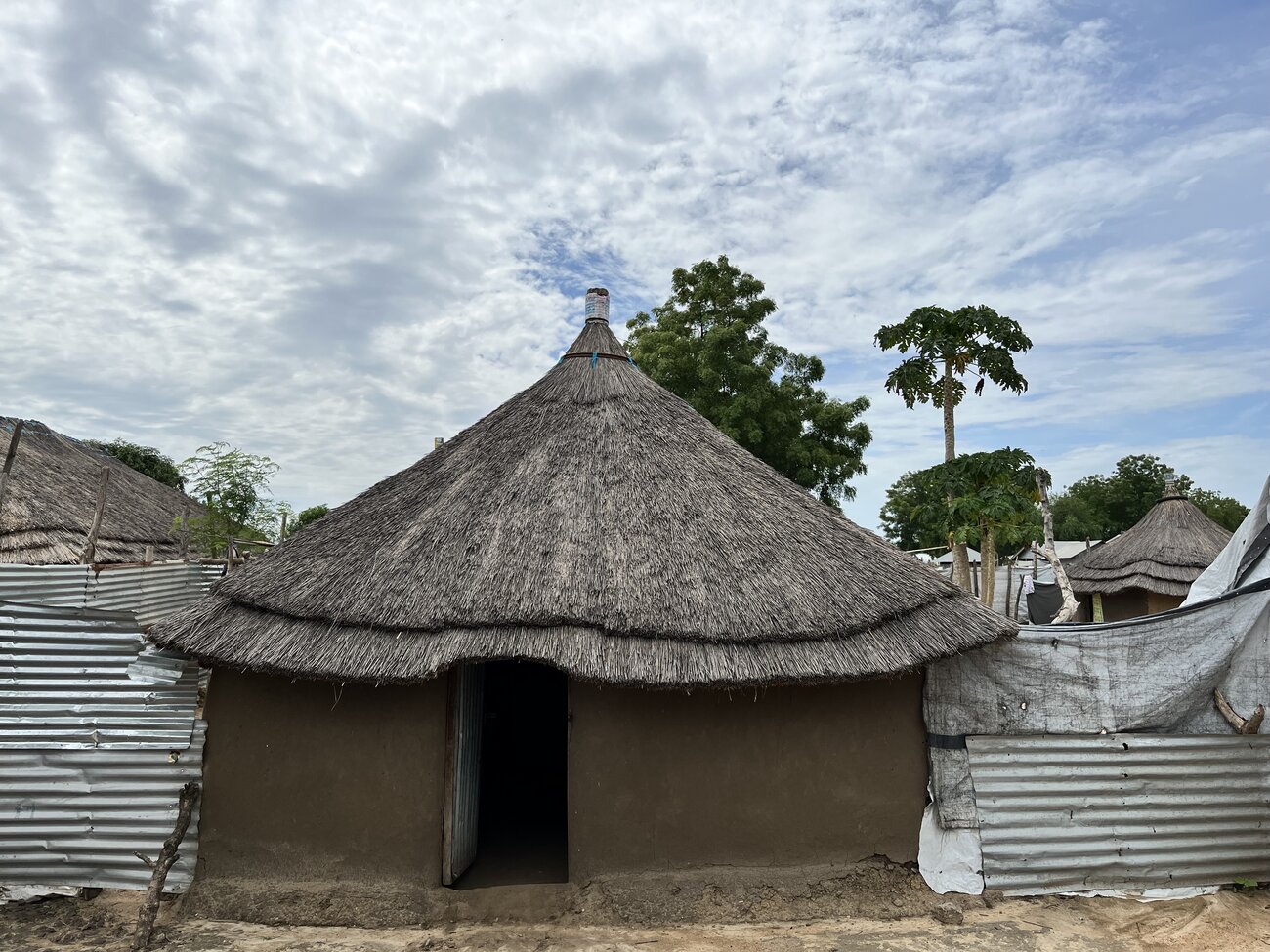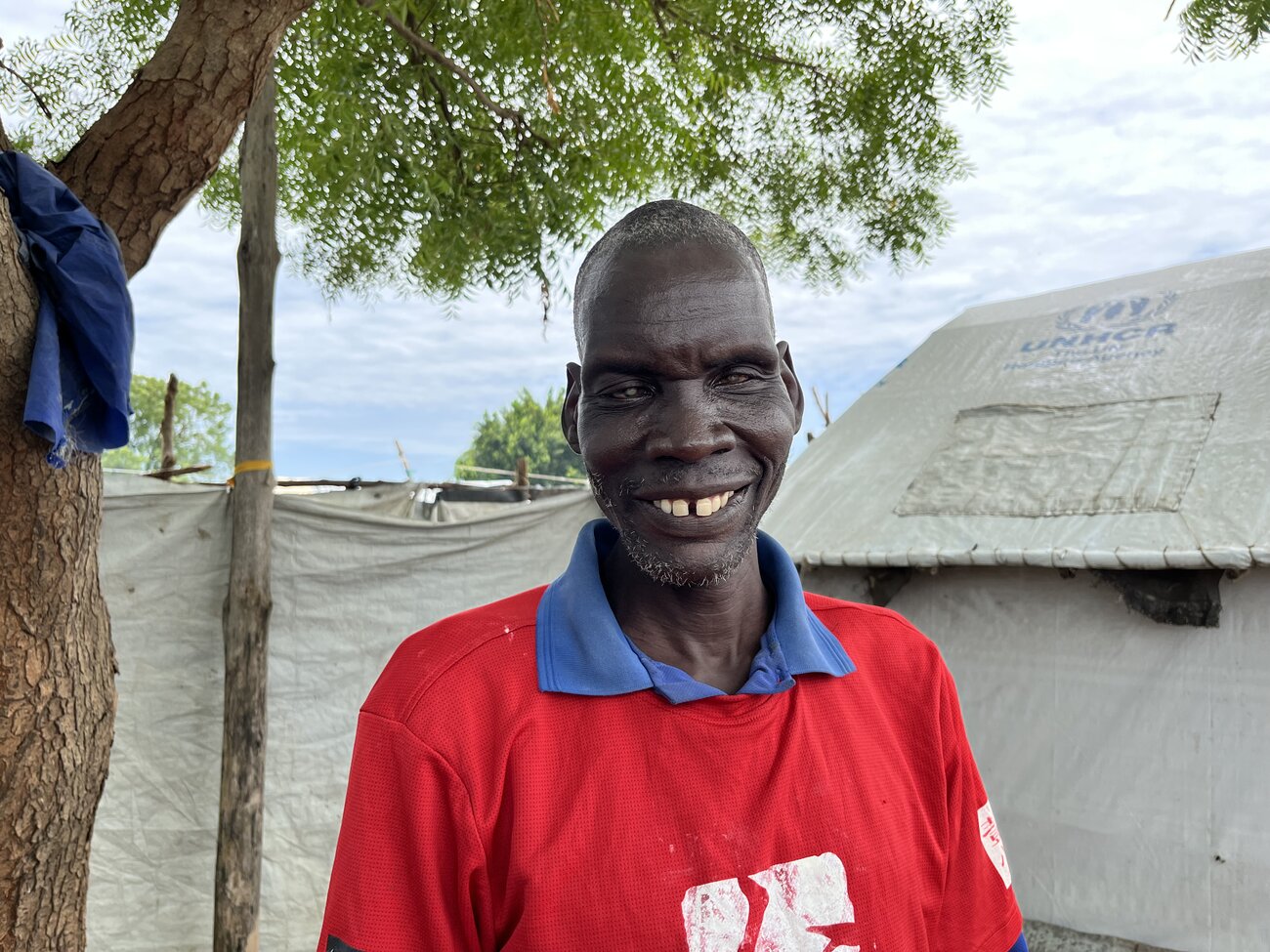‘We don’t let what happened define us’: male survivors in South Sudan speak out
Survivor Story South Sudan 15 July 2025
Date and time
Location
Mustafa* was born and raised in Bor, a South Sudanese town scarred by conflict. A father of two children, he knew no other survivors in his area when GSF began an interim reparative measures project with local partners in 2024. What followed, he said, would change his life completely.
For years, he had carried the weight of the violations he had suffered in silence, burdened by guilt and stigma. In a society with strong cultural norms, being a male survivor brought not only trauma, but also shame.
“You feel like less of a man,” he tells GSF from a ceremony for survivors in Bor, marking their official recognition as participants in our project. “You become invisible, mocked, not seen as human anymore.” That pain had silenced him until he was able to share his story in a safe space, supported by case workers and a local survivor’s network.
South Sudan has witnessed some of the world’s highest levels of conflict-related sexual violence since the outbreak of civil war in 2013. Victims of all ages and genders have been subjected to rape, sexual slavery, and torture, among other forms of violence. Both boys and men have described having to choose between being raped or killed by armed forces – and rape has been used as a weapon of torture against men held in detention.
For men in South Sudan, the stigma runs particularly deep, owing to a traditionally conservative and patriarchal society. They also fear being prosecuted under national legislation, which leads to chronic underreporting of the sexual violence they suffer.
When GSF began working in Bor last year, Mustafa met with other survivors – men and women - for the first time. Sitting together, talking, listening, learning: these acts became healing in themselves. “There is nothing better than sharing everything,” he says. In the group, he found emotional connection and respect, things he thought were no longer possible.

Our partners have spent the last year identifying 400 survivors across Bor and Mundri, where participants will now begin receiving financial compensation, vocational training, and medical and psychological care. From the outset, survivors have been accompanied by trained caseworkers to ensure their wellbeing – but they have also supported one another.
Mustafa still hasn’t shared his story with his wider community. But within the group, he’s been encouraged by other men to be open, and he's found strength in their acceptance. “We don’t let what happened define us,” he says. “We treat ourselves with respect.”
His life changed drastically after the attack, which left him with debilitating physical injuries. Being labelled as a survivor also changed how others saw him - it became harder to find work and be treated as an equal.
The first phase of the project, he says, brought him hope. However, he acknowledges that other men may still be too afraid to come forward.
“We have many male survivors in our society, but they need more time and trust to speak. Many are afraid. What helps is awareness - through radio, through stories. When survivors who’ve achieved something speak up, it encourages others.” His goal is to be among them.
“If I receive [interim reparative measures] support and become independent, I won’t be discriminated against anymore. I will be able to speak.”
What gives him strength now is the thought of his children. “I want them to have the best education possible,” he says. “That way, they can grow up strong and independent. That’s my biggest hope.”
‘We help each other see we are not alone'

Puot, 55, still carries the physical and mental scars of war. In his hometown of Bentiu, armed assailants found him, beat him until he was blind and unconscious, and subjected him to castration. His wife and children were abducted, and he never saw them again.
With no one left to care for him in Bentiu, Puot made his way to Bor, where one of his sisters welcomed him without hesitation. “When you are born into the same family,” he says, “you will always expect the same support.” That familial embrace – often denied to many survivors because of stigma - was his first step toward recovery.
Puot is one of just six men in the Bor project, which he joined following community awareness sessions and encouragement from a relative. Joining the group, he says, has brought him strength. “Before, I had no hope. After learning about this project, I started to believe that maybe something could change.”
Forty other men have joined the project in Mundri, where survivors receive the same forms of interim reparative measures according to their wishes. This includes priority access to medical care, such as HIV screening and specialised surgeries, and individual and group therapy sessions.
Despite his injuries, Puot has not been silenced by what he endured. “I am not the only one this happened to,” he explains. Among family and relatives, he feels no shame, though he admits to occasional fear in the presence of others outside his close circle.
“What happened to me was against my will,” he states firmly. “Being together, even if just a few of us men, is supportive. We help each other see we are not alone.”
Puot chose medical care as his priority, noting his injuries have left him “vulnerable.” He sees physical recovery as a stepping stone to greater independence, hoping to set up a small business once he has received treatment. His aim - selling dry fish – is rooted in memories of the past, and was something he loved back in Bentiu where he lived near the Nile. “It reminds me of home,” he says.
He also places great value on the psychosocial support he has received so far: “It helps relieve my trauma and stress. That’s why I am getting these things - because I need them, and because I believe they will help.”
Despite everything he has endured, Puot is optimistic. He dreams of healing, of economic independence, and even of love. “If my condition improves, if my business succeeds, I will marry again,” he shares. “I will find someone to help me, to love me. If I have resources and wealth, I will build a new life.”
*Names were changed at the request of survivors.

